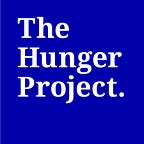Accelerating Action to Close the Gender Digital Divide
By Debra Nhokwara, Global Communications Fellow, The Hunger Project
Over the last decades, digital transformations have made an impact on our daily lives and have had a profound effect on gender equality and the rights of women and girls across the globe. The 67th session of the U.N. Commission on the Status of Women, themed ‘Innovation and Technological Change, and Education in the Digital Age for Achieving Gender Equality and the Empowerment of All Women and Girls,’ came to an end last week. Over the course of two weeks, organizations and advocates were immersed in conversations on the challenges and opportunities in achieving gender equality and the empowerment of rural women and girls given these technological advancements and the widening gender digital divide.
Why should the world care about closing the digital gender divide? Gender inclusion is a critical aspect of digital transformation in developing countries. It is well established that there are significant gender gaps in access to and use of digital technologies, which can lead to further marginalization of women and girls. Globally, men are 21% more likely to be online than women and the figure increases in least developed countries to 52%. There are still social norms that prioritize men’s access to technology, and discrimination against women both at home and in the workplace. It is essential to ensure that gender considerations are integrated into all aspects of digital transformation planning and implementation. This includes having women in decision-making processes and making sure gender-based data is collected and analyzed to inform policy and program development to promote women’s participation in the digital economy.
One key aspect of gender inclusion in digital transformation is ensuring that women and girls have equal access to digital technologies. This includes providing affordable and reliable internet connectivity and ensuring that digital devices and tools are accessible to women and girls, particularly those in rural and remote areas. Efforts should also be made to promote digital literacy and skills training programs that are specifically tailored to the needs of women and girls.
Connectivity alone is not enough, so how do we make sure it is meaningful access? The use of technology should be transformational in terms of creating opportunities for women such as education, employment, entrepreneurship and civic engagement. Meaningful access has the power to uplift marginalized communities through access to information that can improve rural healthcare, agricultural productivity and business systems which can contribute to ending hunger and poverty.
At The Hunger Project, through a partnership with Microsoft, Bluetown and USAID, we are bringing Internet connection to rural communities in Ghana, Malawi, and Mexico. The program connects women to vital online resources that they utilize to create waves of lasting development in their communities. Through Hunger Project training resources stored in a digital cloud, and all of the content on the internet, women have access to information about education, agriculture, health, government initiatives, finance and business management and to become active members of the digital economy.
Stella, an entrepreneur and business owner in Ghana, has managed to grow her businesses through participating in the Meaningful Access project. She started her business 20 years ago, selling goods at her local market. Through the use of the Internet, she has learned new skills on the Internet that have helped her make more money. You can read more about Stella’s story here.
By closing the gender digital divide, we can ensure that women are not left behind in the digital age, and they can harness the full potential of technology which contributes to ending hunger and poverty. We can create a more equitable and inclusive digital society by promoting equal access to digital technologies, empowering women and girls, and addressing socio-cultural barriers,
Learn more about our work to close the gender digital divide by watching our 2023 NGO/CSW Forum parallel event, featuring insights from Bluetown, The Global Digital Inclusion Project, The Hunger Project and Microsoft, here.
The Hunger Project is a global development organization that transforms the systems of inequity that keep hunger in place.
